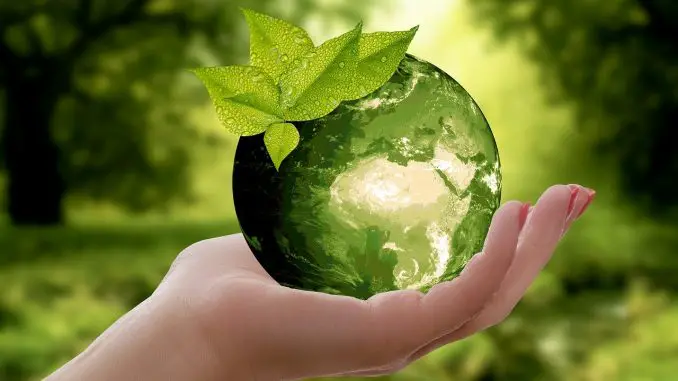
Sustainable development is used as a unifying concept for everything we humans take for us that has consequences for the earth and the future of its inhabitants.
Ecosystems often play a prominent role when we talk about sustainable development. But really, sustainable development is an interplay of many different factors that, if well managed, together will help future generations to live a good life on planet earth. These factors are ecological, social and economic in nature.
An important guideline for sustainable development is the Bruntland Report of 1987. It defines sustainable development in the following way:
“… such development that satisfies current needs without compromising the ability of future generations to meet their needs”.
The report found that there is a link between economic development and environmental degradation, and long-term strategies for environmental protection were formulated.
The concept of sustainable development is usually broken down into the following basic elements:
Organic sustainability is regarded as the foundation for sustainable development. Our economic and social conditions depend on how well we manage our ecosystems. When we extract the resources of the earth, it must be done in such a way that nature can recover. If not, the earth’s ability to provide resources in the future is depleted. A functioning ecosystem provides us with food, energy and clean water, among other things. Without these, we cannot survive on planet earth. Sustainable development means that we provide for land use, species diversity, emissions and environmental protection.
Social sustainability refers to our access to health, safety and education.
Social sustainability is also interpersonal trust, participation, and justice. Human rights establish our right to be treated equally regardless of gender, ethnicity, religion, sexual orientation, age and other characteristics of our person. When important components of social sustainability are in place, society becomes resilient, flexible and dynamic.
Economic sustainability means that we build our financial systems on approaches that are sustainable in the longer term. This could be, for example, environmentally friendly technology, which provides economic growth with the least possible environmental impact or to strive for a reduction in carbon emissions and efficient use of resources. Sustainable consumption and production are keywords in economic sustainability.
Economics as a concept is about managing resources. In this context, it is about keeping in such a way that even the other two factors, social and ecological sustainability, are realized.
These three work together in a way that can sometimes make it challenging to make clear boundaries. It is about processes and phenomena that take on varying expressions. For example, poverty reduction is closely related to all, since poverty can be attributed to living conditions, environmental problems or economic exploitation.
They are often described in the above order, where ecological sustainability is a prerequisite for social sustainability, which in turn is a prerequisite for economic sustainability.

Leave a Reply